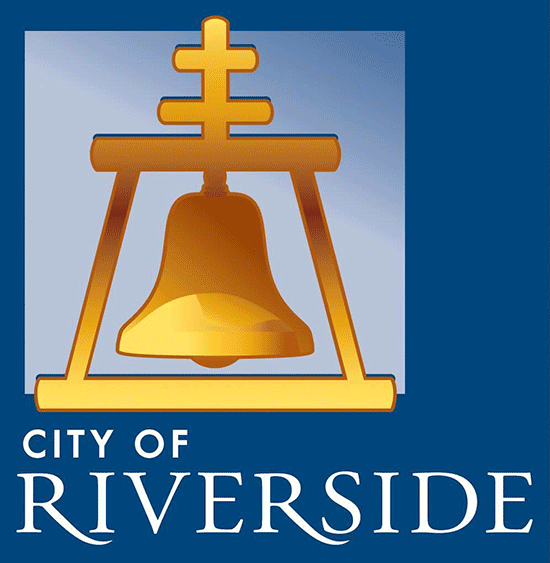City of Riverside’s Eviction Moratorium

Temporary Moratorium on Tenant Evictions Due to COVID-19
On March 31, 2020, the Riverside City Council adopted a resolution establishing a temporary 60-day moratorium on evictions due to nonpayment of residential and commercial rent for those whose income was directly and negatively impacted by COVID-19. This moratorium will be reviewed for termination or extension by the City Council on May 31, 2020.
After the lifting of the local emergency, impacted tenants will have up to six months to pay back owed rent.
This moratorium builds upon state-mandated protections against evictions as a result of an Executive Order N-37-20 issued by California’s Governor, which halts the enforcement of residential evictions due to nonpayment of rent for those whose income was directly and negatively impacted by to COVID-19 until May 31, 2020.
Who Is Protected?
Learn More
This moratorium applies to all residential and commercial tenants within the limits of the City of Riverside (only) whose income was directly and negatively impacted by COVID-19. It applies regardless as to when the rental unit was built. Single family residences and condominiums that are rented are included in this ordinance. All commercial tenants are also protected.
What is the Tenant Required to Do?
Learn More
- Notify their landlord within 7 days of the day rent is due: The tenant is to make every effort possible to notify the landlord of their inability to pay the full rent and they are encouraged to do so as early as possible. The tenant has 7 days from the day rent is due to notify their landlord in writing of their inability to pay rent due to reasons related to COVID-19. This means that if rent is due April 1st, the tenant has until April 8th to notify their landlord. Documentation of inability to pay rent must be verifiable and may be provided to the landlord no later than the time payment of back-due rent.
The notification can be an email, text, letter, but must be made in writing It is suggested that the tenant maintain a copy of the notification. While the city is strongly encouraging tenants to pay any portion of the rent possible, no verifiable documentation of loss of income is required in advance. Under the State’s executive order, the tenants are required to maintain and submit verification that their income was negatively impacted by COVID-19, but this documentation does not have to be provided until owed rents are paid, per state or local order.
Example of an acceptable notification: Hello, I will be unable to pay the full rent for the month of ______, due to reasons related to COVID-19. I am protected from eviction due to the City of Riverside’s eviction moratorium and the Governor’s Executive Order. I will be able to pay a partial amount of _____ (optional).
- Make an effort to pay the amount of rent within their ability: It should be expressly noted that this moratorium does not relieve the tenant of their contractual obligation to pay rent, but instead it is aimed at preventing eviction during these uncertain times. The tenant is still legally required to pay all rent, and therefore encouraged to make an effort to pay any portion of the rent within their ability to pay. This will provide protection to the tenant from a situation where they have a large sum of rent due at the end of this moratorium and will also help landlords maintain their own personal and business expenses.
- Pay back rent that is owed within six months of the lifting of the local emergency: Residential and commercial tenants who were afforded eviction protection will have up to six months after the lifting of the local emergency to pay their landlord all unpaid rent. While this order is currently scheduled to end on May 31, 2020, there is a possibility that the Riverside City Council will extend the eviction protections. During the six-month payback period, the protections against eviction will apply for such tenants. No late fees will be owed.
What if a Tenant was Late Paying Rent Before the Ordinance Was Adopted?
Learn More
The ordinance does not prevent a landlord from evicting a residential or commercial tenant who failed to pay rent that was due before the ordinance was adopted on March 31, 2020 or for any other lease violation.
Will the Tenant Still Owe the Landlord the Full Amount Due After the Moratorium Has Ended?
Learn More
Yes, the temporary moratorium does not relieve the tenant from their obligation to pay rent nor does it restrict the landlord’s ability to recover rent that is due after the termination of the moratorium.
Can a Landlord Demand the Tenant Pay a Specific Portion of the Rent Prior to the Timeline Described in the Order?
Learn More
No, the landlord does not have the right to demand or coerce a tenant into paying a portion of the rent. Tenants that notify their landlord of their inability to pay due to COVID-19 are afforded full protection from eviction due to nonpayment of rent. Tenants that have the ability pay a portion of their rent are encouraged to do so in an effort to keep their balance manageable.
What Happens if the Landlord Moves Forward with an Eviction?
Learn More
If a tenant complies with the requirements, a landlord cannot serve an eviction notice, file or prosecute an unlawful detainer action based on a three-day pay or quit notice, or otherwise endeavor to evict the tenant for nonpayment of rent. A tenant may use this moratorium as an affirmative defense in an unlawful detainer or other action brought by landlord to recover possession of the rental unit.
What Help is there for Landlords Who are Struggling Due to COVID-19?
Learn More
Over 200 banking institutions, including Wells Fargo, Citi, JP Morgan Chase and Bank of America, and many state-chartered banks have agreed to some form of mortgage forbearance for property owners. For most, this is a 90-day forbearance. Contact your lender for more information.
Additionally, The Federal Housing Administration suspended all evictions and foreclosures for single family homeowners with FHA insured mortgages.
The FHFA moved to offer mortgage forbearance for multi-family property owners with a government backed mortgage under the condition that they suspend evictions for renters unable to pay rent due to the impacts of coronavirus. The suspension would be required to last for the entire duration of the forbearance.
In addition, those landlords that legally set up their property as a business may be eligible for additional relief as part of the Federal CARES package or other Small Business Association relief.
Additional Resources
If you are a Residential Tenant or Landlord Contact
Fair Housing Council of Riverside County at
Phone: 1-800-655-1812
or
If you are a Commercial Tenant or Landlord Contact
Community Economic Development Department at
